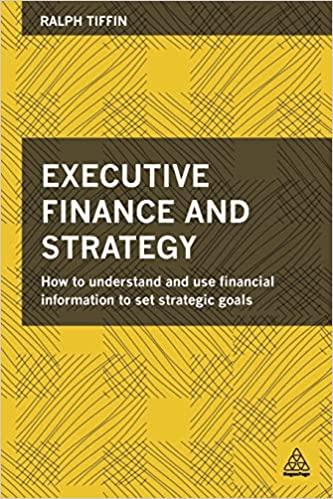Question
Section A - Briefly answer each of the following questions: a) What can catastrophe modelling be used for within a (re)insurance organisation? (5 marks) b)
Section A - Briefly answer each of the following questions:
a) What can catastrophe modelling be used for within a (re)insurance organisation? (5 marks)
b) Pecking order theory tells us about companies preferences when making choices around raising capital. How can pecking order theory reveal the relative impact of the World Trade Center attacks on insurers and reinsurers? (5 marks)
c) Provide a brief description of an Industry Loss Warranty (ILW) and give two reasons for a company to sell an ILW. (5 marks)
d) From your reading of Kunreuther & Linnerooth-Bayer (2003) what are the advantages and disadvantages of hedging instruments in the context of catastrophic flood risk? (5 marks)
e) What is the underlying index used in a temperature weather derivative and how is it calculated? (5 marks)
Section B -
a). Describe the challenges in using catastrophe modelling in a reinsurance organisation. (5 marks)
b) Identify five reasons why companies create a captive. (5 marks)
c) Outline the typical feasibility process that companies undergo when deciding on captive management. (5 marks)
d) Distinguish between a direct captive and a reinsurance captive (5 marks)
e) What are the advantages of domiciling a captive onshore? (10 marks)
f). Describe three trigger structures that can be used to activate a payout on a catastrophe bond and in each case identify their benefits to one or both counterparties to a cat bond transaction. (10 marks)
g) A reinsurer sells a 10 million layer of cover for an insured property portfolio mostly located in Germany, Italy and France. Cover is being provided via a traditional XL contract and she charging 15% rate on line. As a hedge she is evaluating the purchase of 10 million for from ILW triggered by European-wide insured losses >20 billion from a winter storm (ILW Premium is 10%). If she undertakes the hedge, what will be her net cash position at time zero? (10 marks)
h) How might negative basis risk arise for the reinsurer in the scenario described in g)? (5 marks)
Step by Step Solution
There are 3 Steps involved in it
Step: 1

Get Instant Access to Expert-Tailored Solutions
See step-by-step solutions with expert insights and AI powered tools for academic success
Step: 2

Step: 3

Ace Your Homework with AI
Get the answers you need in no time with our AI-driven, step-by-step assistance
Get Started


